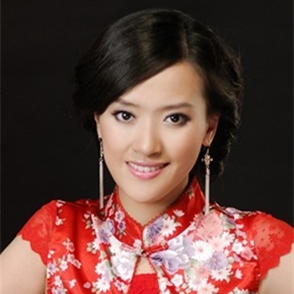Zhao Xiaoxia
Organized by 亦寒 on 2022-03-25

Zhao Xiaoxia, born in Chengdu, Sichuan in May 1983, started learning Guqin with Yu Qinqin, a Sichuan-born qin master, at the age of 9. He is currently a Guqin teacher at the Central Conservatory of Music, a young Guqin performer, a director of the Chinese Guqin Society, and the "Buddhist Music Ambassador" of Hong Kong's Buddhist cultural industry.
He has participated in many concerts at home and abroad, and arranged and played guqin music for many film and television dramas, all of which have achieved great success. In 2006, "China's First Folk Music Master - Zhao Xiaoxia Chun's Solo Fever Album <Guqin>" published by China Musician Video Publishing House won the Gold Award for Production and Sales at the China International Audio-Visual Expo.
Similar artist
Yang Qing, a famous guqin master and music educator, was born in August 1951.
read >>
Ni Shiyun, a native of Haimen District, Nantong City, Jiangsu Province, China's famous contemporary qin mojo, the fourth generation inheritor of the Mei 'an Qin School, the representative inheritor of the intangible cultural heritage of Jiangsu Province "Guqin art" (Mei 'an Qin school), serves as the director of the Chinese Kunqu Opera Guqin Research Institute and the executive director of the Chinese Qin Association.
read >>
Yang Qiong, the word Yu Rong, Yushan Qin school successor, South Yuqin Club president, operation aman for more than ten years, good at qin songs. He is currently the vice president of Shenzhen Guqin Association, member of Shenzhen Ethnic Orchestral Association, lecturer of Shenzhen University School of Continuing Education and so on.
read >>
Yang Zhijian, Guqin maker and performer. Born in Shanghai in July 1974. National first-class performer; representative inheritor of Shanghai intangible cultural heritage "Guqin-making skills"; vice-chairman of Shanghai Intangible Cultural Heritage Protection Association. Winner of "Shanghai Craftsman" and "May 1st Labor Medal" in 2017.
read >>
Huang Deyuan, inheritor of the intangible cultural heritage "Zhejiang style guqin" and "Wenzhou dialect recitation".
read >>
Involving musical instruments
Guqin (pinyin: Gǔ Qín) is a traditional Chinese musical instrument with a history of at least 3,500 years. Guqin is also known as Yaoqin, Yuqin and Seven-stringed Qin. The guqin has 13 emblems that mark the rhythm, and is also a ritual and musical instrument. It belongs to the silk in the octave. Guqin has a wide range, deep timbre and long aftertone.
Involved portfolio
Involved news
Organized by 苏肆 on 2025-04-03
In the long river of ancient Chinese music, Guqin occupies an irreplaceable position with its profound cultural connotation and unique timbre. Among the many famous Guqin songs, "Snow White" is like a bright pearl, with its quiet and elegant style, it has become a classic beloved by scholars of all ages.
read >>
Organized by 没头脑 on 2025-03-31
"Autumn Wild Geese" is a brilliant gem in the treasure house of ancient Chinese guqin music. It is not only renowned worldwide for its profound and distant artistic conception, but also has become a classic work passed down by later generations due to its unique artistic charm and profound ideological connotation.
read >>
Organized by 天井 on 2025-03-07
The guqin, as a treasure among traditional Chinese musical instruments, with its profound timbre and rich cultural connotations, has become an important medium for scholars and refined people to cultivate their character and express their sentiments. Among the numerous guqin pieces, "Pu'an Zuo" stands out as a highly representative work with its unique Buddhist background and the distant and meditative musical style.
read >>
Organized by 肖毅 on 2025-02-26
In the vast starry sky of Chinese classical music, guqin pieces occupy an important place with their profound cultural background and unique artistic charm. Among them, "The Four Scenic Views" is a highly representative work that not only showcases the exquisite and far-reaching artistic conception of guqin music but also leads the listener into a world brimming with vitality and vigor.
read >>
Organized by 烟雨燕双飞 on 2025-01-08
With the advent of cold winter, the sudden drop in temperature and the change in air humidity have put special requirements on the maintenance of delicate traditional Musical Instruments such as guqin. As the treasure of Chinese traditional culture and art, Guqin is deeply loved by literati for its beautiful timbres and long charm. In order to ensure that you can also maintain your best condition in winter, so that the elegant rhyme that has spread for thousands of years continues to reverberate in the winter, here are some important maintenance tips.
read >>

 渝公网安备 50010702504639号
渝公网安备 50010702504639号